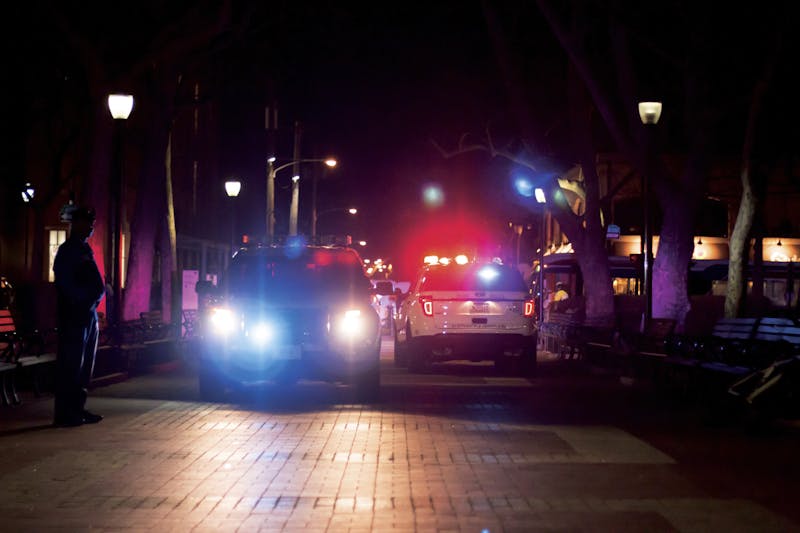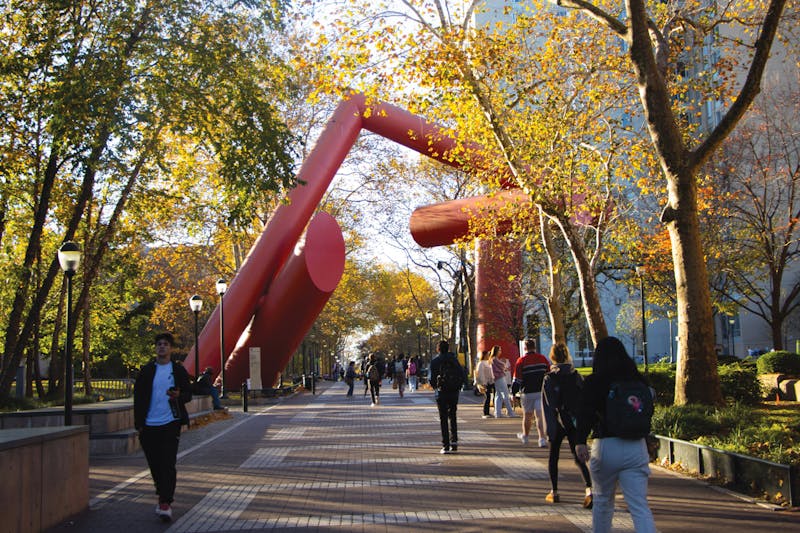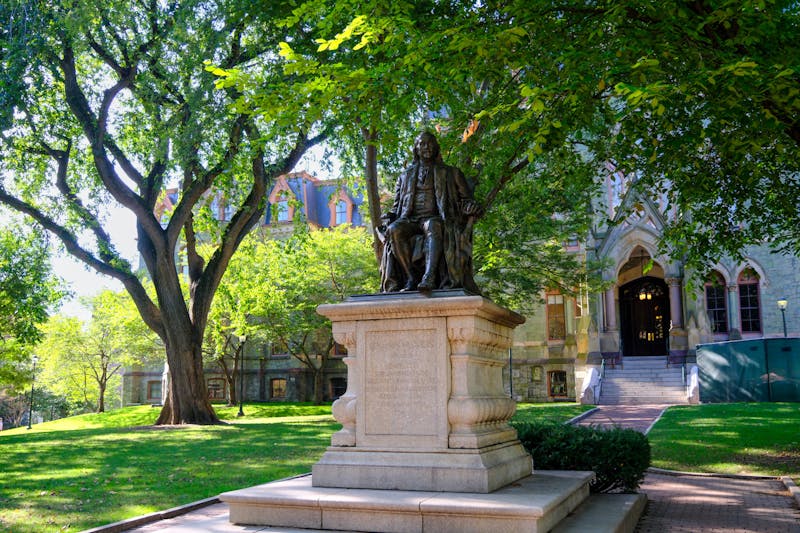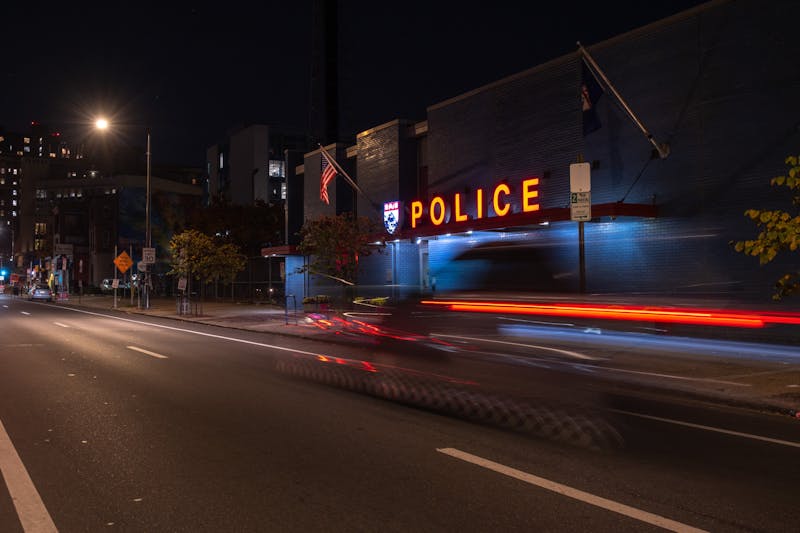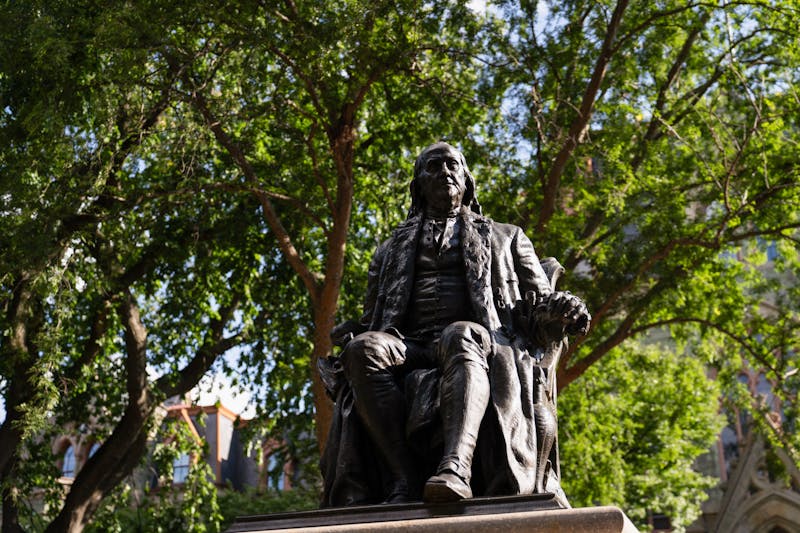
Pro-Palestinian faculty at Penn called for a vote of no confidence in administrators after the University executed a search warrant at a student activist house off campus.
Professors continue to denounce what they call an unnecessarily heavily handed police response during Penn's raid of the residence, which took place early in the morning on Oct. 18. Penn’s chapter of Faculty for Justice in Palestine started a petition demanding an investigation into the search, a repeal of new protest guidelines, and the vote of no confidence. Meanwhile, the Executive Committee of Penn’s chapter of the American Association of University Professors condemned the administration’s “escalating use of police action against Penn students" in a statement published Oct. 26.
The off-campus raid — which was publicly disclosed on social media by Penn Students Against the Occupation of Palestine on the evening of Oct. 21 — came after Penn obtained a search warrant that was reviewed by the Philadelphia District Attorney's office and approved by a bail commissioner. The search is related to an ongoing criminal vandalism investigation, and Interim Penn President Larry Jameson was “not involved” in the decision to execute the warrant, the Division of Public Safety told The Daily Pennsylvanian.
In its statement, AAUP-Penn called the search a “dangerous and traumatizing treatment” of students and questioned the intensity of the police response to the alleged vandalism charge. It further described the administration and Penn Police as “preeminent threats to safety in our community.”
“We are alarmed by the University’s pattern — established last year and extended this year — of treating all protest by faculty, staff, and students against Israeli government policies and warmaking chiefly as a security concern, rather than an expression of students’ rights to assemble and engage in political activity, and faculty’s right to freedom in extramural speech,” AAUP-Penn wrote in its statement.
AAUP-Penn, a faculty advocacy group that weighs in frequently on the University's responsibilities to its campus and surrounding city, said administrators had indicated a willingness to threaten students with "potentially deadly" physical force in their own homes.
"Authorizing an armed police raid on students in these circumstances is abhorrent, and it gives the lie to the university administration’s pretension to be acting to protect students from harm," AAUP-Penn said.
Members of PFJP circulated a petition in an Oct. 25 Instagram post responding to the search. The petition outlined three demands: a “formal, public investigation” of Vice President for Public Safety Kathleen Shields Anderson and other officers “who authorized and led the raid,” an “immediate repeal” of the temporary open expression guidelines that were enacted in June, and a vote of no confidence “in the university administrators responsible for militarizing the campus environment” — including Jameson, Provost John Jackson Jr., and Vice Provost for University Life Karu Kozuma.
The petition denounced Penn Police’s actions, calling the organization “a renegade police department with no oversight from university administration.”
“All of this intimidation and harassment is in clear violation of the University’s own Guidelines, which state that protests must be dealt with in non-emergency situations solely by negotiation with students, never by threatening arrest or force via police,” the group wrote.
The petition claimed that the "illegitimate" temporary standards and guidelines have facilitated a "pattern of violence and intimidation" on Penn's campus that endangers decades of free speech protections on campus.
“These guidelines were not produced by a process of shared governance, but instead created and instituted ad hoc to effectively ban Palestine solidarity protests on campus,” PFJP added.
AAUP’s statement also cited the University’s “draconian” response to a pro-Palestinian vigil on Indigenous Peoples' Day on Oct. 14 as evidence of a broader pattern of behavior, alleging that administrators' actions violated Penn’s Guidelines on Open Expression by engaging in viewpoint discrimination.
PFJP hosted the vigil in conjunction with Penn Students Against the Occupation of Palestine and Penn Jewish Voice for Peace, as well as eight organizations not affiliated with the University. In response to the vigil, Philadelphia and Penn Police closed off Locust Walk from 34th to 36th streets, as well as several surrounding roads.
“As it has done repeatedly over the past year, the administration unjustly depicted Penn faculty, staff, and students who were grieving the deaths of Palestinians as outsiders to our community and threats to others. The administration’s actions, not the protest itself, were threatening to members of our community and disruptive to the research and teaching mission of the university,” AAUP wrote.
The Daily Pennsylvanian is an independent, student-run newspaper. Please consider making a donation to support the coverage that shapes the University. Your generosity ensures a future of strong journalism at Penn.
Donate







